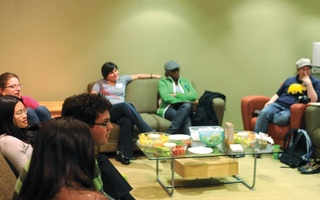In January, the Common Application decided not to include a question about college applicant’s sexual orientation or gender identity in its widely used application. Last week, Dean of Admissions and Financial Aid William R. Fitzsimmons ’67 told The Crimson that despite that decision, Harvard College is considering giving applicants that option on its supplement in order to show prospective students that the College is a welcoming space for them. If it does, Harvard will join Elmhurst College, which was the first college in the country to pose such a question this year. Peer institutions such as the University of Pennsylvania are also considering such additions to their applications.
We welcome the College’s decision to offer students the option to self-identify as queer. Such a question does not force students to pick a label while offering students who wish to utilize the option the opportunity to show the College another aspect of their identity.
Harvard prides itself on recognizing the diversity of our student body, through demographic questions and public events such as Diversitas. Public recognition of diversity with regard to sexual orientation and gender identity is no different, and this move will reaffirm the College’s commitment to diversity in all its forms. As with other identity questions, providing applicants with the option of self-identifying as lesbian, gay, bisexual, or transgender shows that Harvard acknowledges and values these unique aspects of their identities.
It should be no secret that queer students are enthusiastically embraced at Harvard and have held top leadership positions in cultural groups, the Harvard College Democrats, and the Harvard Republican Club. The University covers a variety of medical options for transgender students and employees, has appointed openly gay housemasters, and recently opened a BGLTQ student resource center. Those of us on the inside know that Harvard is queer friendly, but prospective applicants often lack the same insights. The proposed question on the Harvard supplement would highlight that the University embraces queer students from day one.
However, we must be mindful that the way the question is phrased is just as important as whether the question exists at all. Less than 100 years ago, Harvard initiated a veritable witch-hunt to purge its halls of queer students. Fears of that prejudice persist to this day, and any solicitation of information regarding the sexual orientation or gender identity of prospective students must be clear about the information not being used against the students in any way. Additionally, it is important to remember that prospective applicants may have wide-ranging sexual and gender identities and to be willing to accommodate them.
The Harvard of the 1920s is not the Harvard of today, and we urge the College, come February, to make the right decision and to reach out to queer applicants in this manner.
Read more in Opinion
Occupy Occupy!Recommended Articles
-
 Students Connect Race, Queerness
Students Connect Race, Queerness -
Should Colleges Ask?Supporters of this movement believe that such a question will better enable colleges to meet the needs of LBGT prospective applicants and would produce a more sexually diverse classes. However, although it has the best intentions, the current proposition is flawed for several reasons.
-
Educators Challenge Virginity ConnotationsHealth educators, feminist bloggers, and queer activists gathered at the Rethinking Virginity Conference on Monday to critique American society’s negative portrayal of losing one’s virginity.
-
Male Undergrad Victim of Hate CrimeA male Harvard undergraduate was the victim of a hate crime and robbery on Sunday, according to a Harvard University Police Department crime report released yesterday.
-
Random Acts of GaynessMy main objective with the random acts of gayness is to educate. Basing most of my strategy on the methodology used in “Pay it Forward,” I hope that the ladies across campus will start to share our knowledge.
-
Outed As AlliesLet us not forget that just two decades ago, Harvard was not nearly the queer-friendly place that it is today.













